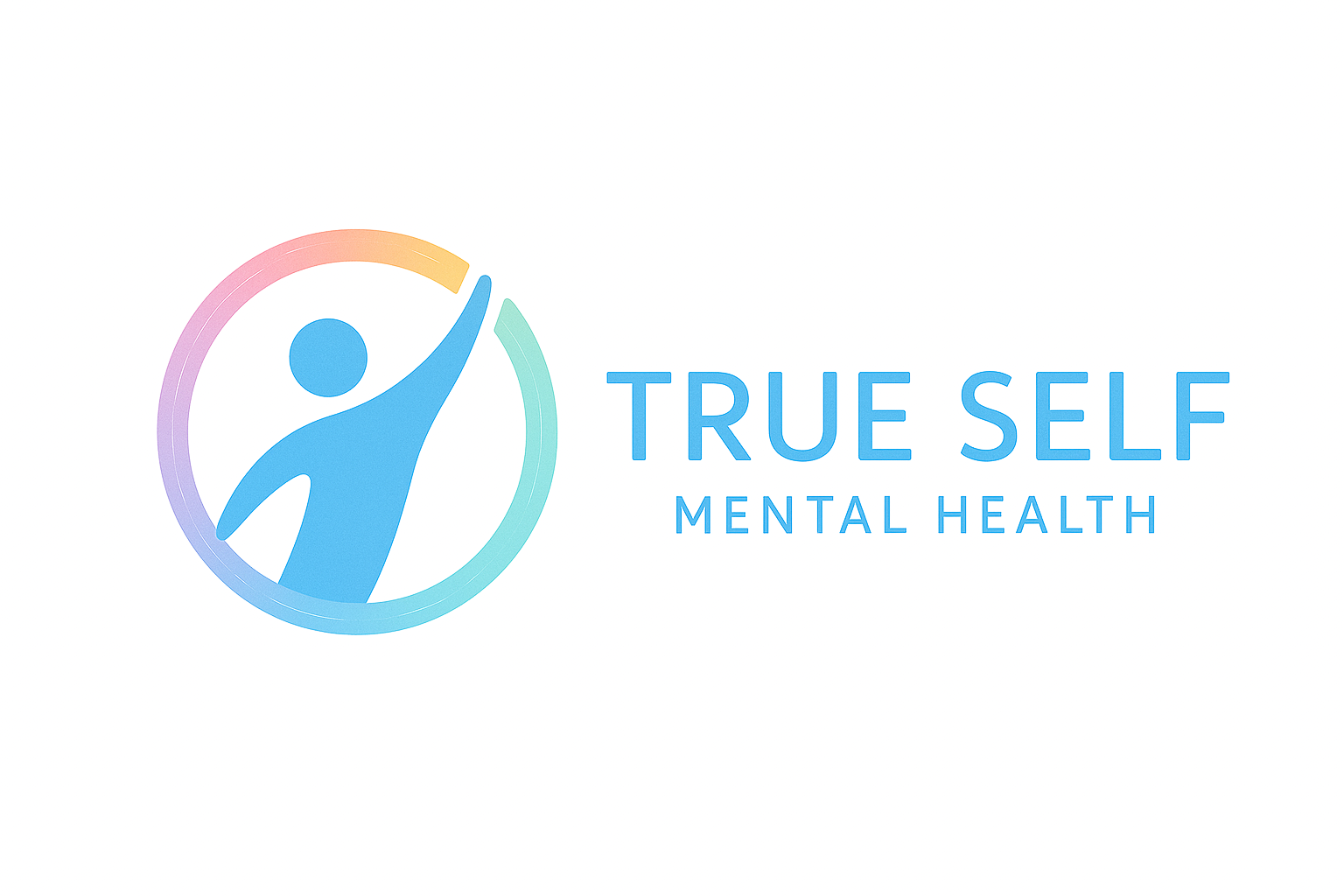Understanding Depression: A Journey to Healing with True Self Mental Health
- True Self Mental Health

- Oct 3, 2025
- 4 min read
Updated: Nov 7, 2025
You're not alone in feeling overwhelmed by depression. It's a heavy burden, especially for those in the LGBTQ+ community, where unique challenges often go unspoken. At True Self Mental Health, we understand the weight of these struggles and are here to offer inclusive care tailored to your needs. In this post, we’ll explore what depression looks like, discuss therapy options, and explain medication possibilities. Learn more about depression and its treatment. Reach out to True Self Mental Health today to begin your journey.
What Depression Looks Like

Recognizing Symptoms in the LGBTQ+ Community
Recognizing the symptoms of depression within the LGBTQ+ community involves understanding both common and unique signs. Common symptoms include persistent sadness, loss of interest in activities, and changes in appetite or sleep. Yet, the LGBTQ+ community may face additional challenges, making these symptoms more complex. Internalized stigma, discrimination, and lack of support can exacerbate feelings of isolation and hopelessness.
It's essential to acknowledge how societal pressures can impact mental health. For many, coming to terms with one's identity can add layers of stress, anxiety and sadness. Feeling different or misunderstood may heighten these symptoms, leading to a cycle of withdrawal and despair. Creating safe spaces for open dialogue is crucial in breaking this cycle.
Support networks play a vital role in alleviating these feelings. Connecting with LGBTQ+ affirming groups, therapists, or providers can help individuals feel seen and supported, providing a foundation for healing and self-acceptance.
Unique Challenges Faced by LGBTQ+ Individuals
LGBTQ+ individuals often encounter unique challenges contributing to depression. Discrimination and stigma can lead to social exclusion, affecting mental wellness. Experiencing rejection, whether from family, friends, or society, further strains one's emotional resilience. These experiences can foster a sense of being unworthy or invisible, compounding feelings of depression.
Moreover, internalized homophobia or transphobia can significantly impact self-esteem. Struggling with self-acceptance while navigating a world that may not always be supportive can be exhausting. This struggle often results in higher rates of anxiety and depression within the community.
Access to inclusive mental health resources is crucial. Many LGBTQ+ individuals face barriers to receiving appropriate care due to a lack of understanding from healthcare providers. It's vital to seek out professionals who are trained in LGBTQ+ issues to ensure affirming and effective support. Addressing these challenges head-on provides hope for a more inclusive future.
Exploring Therapy Options

Types of Therapy for Depression
When exploring therapy options for depression, it's important to understand the various types available. Cognitive Behavioral Therapy (CBT) is a widely used approach that focuses on changing negative thought patterns to improve emotional regulation and develop personal coping strategies. This method is effective for many individuals, including those in the LGBTQ+ community, as it helps address specific stressors related to identity and discrimination.
Another valuable option is Dialectical Behavior Therapy (DBT), which combines cognitive and behavioral techniques with mindfulness practices. DBT is particularly effective for those experiencing intense emotions or who engage in self-destructive behaviors. It provides tools to manage stress and improve relationships, which can be particularly beneficial for LGBTQ+ individuals facing unique challenges.
For a more holistic approach, some may find Acceptance and Commitment Therapy (ACT) helpful. ACT encourages clients to accept their thoughts and emotions rather than fighting them, promoting a more fulfilling life aligned with personal values. This can be empowering for those striving to live authentically within the LGBTQ+ community.
Benefits of Virtual Therapy Sessions
Virtual therapy sessions offer significant benefits, making mental health support accessible to those who need it most. The convenience of attending sessions from home removes barriers like transportation and scheduling conflicts, which can be particularly beneficial for individuals in rural areas or those with mobility challenges.
Virtual therapy also provides a level of privacy that can be comforting to LGBTQ+ individuals who may not feel comfortable seeking in-person care. This setting allows clients to engage with therapy in a safe and familiar environment, fostering a sense of security and openness.
Additionally, virtual therapy can expand access to LGBTQ+ affirming therapists, who may not be locally available. Finding a therapist who understands and respects diverse identities is crucial for effective mental health support. Virtual platforms connect clients with specialized professionals, ensuring care that is both inclusive and tailored to individual needs.
Medication as a Treatment Option

Understanding Medication Choices
Medication can be a valuable part of treating depression, often used in conjunction with therapy. There are several classes of antidepressants, each working differently to alleviate symptoms. Selective Serotonin Reuptake Inhibitors (SSRIs) are commonly prescribed due to their effectiveness and relatively mild side effect profile. They help increase serotonin levels in the brain, improving mood and emotional stability. For more details on mental health medications, visit NIMH.
Another option is Serotonin-Norepinephrine Reuptake Inhibitors (SNRIs), which target both serotonin and norepinephrine in the brain. These medications can be especially helpful for individuals experiencing fatigue alongside depression. It's important to consult with a healthcare provider to determine the most appropriate option.
For those with treatment-resistant depression, Atypical Antidepressants or Tricyclic Antidepressants (TCAs) may be considered. These medications are typically reserved for cases where other treatments have not been effective, due to their potential side effects. Understanding each medication's function and benefits is crucial in making informed decisions about mental health care.
Navigating Potential Side Effects
When considering medication for depression, it's essential to be informed about potential side effects. While antidepressants can be effective, they may also cause unwanted reactions. Common side effects include nausea, weight gain, and sexual dysfunction. These typically diminish over time, but it's important to discuss any concerns with a healthcare provider. The Mayo Clinic offers comprehensive information on managing side effects.
It's crucial to monitor mood and behavior changes, especially when starting a new medication or adjusting dosages. Some individuals may experience increased anxiety or agitation, which should be promptly addressed with a medical professional.
In some cases, finding the right medication involves trial and error. Working closely with a healthcare provider ensures that adjustments can be made safely and effectively. Open communication about side effects and concerns helps tailor treatment to individual needs, promoting better mental wellness outcomes.
Reach out to True Self Mental Health today to begin your journey toward healing and self-discovery. 🌈




Comments